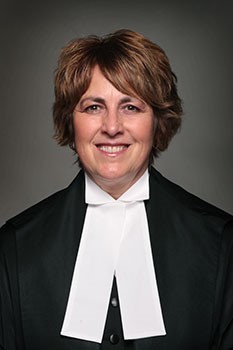Algoma-Manitoulin-Kapuskasing MP Carol Hughes says the repeal of the blood donation ban for 2SLGBTQI is long overdue.
She says Health Canada has removed barriers that prevented gay and bisexual men, and transgender women from donating blood and plasma through Canada Blood Services.
Hughes says with the ban lifted on the three-month donor deferral period, the discriminatory policy will finally end, and more people will be able to donate blood and save lives.
Hughes says due to proper testing and stringent guidelines, Canada now has one of the safest blood supplies in the world, and there has not been a single transfusion-transmitted infection from hepatitis C or HIV since Canadian Blood Services started in 1998.
The policy that prevented men who have sex with men (or MSM, the term used by Canadian Blood Services) started in 1992, following the tainted blood scandal, recalls Hughes.
“The scandal also resulted in the Commission of Inquiry on the Blood System in Canada, otherwise known as the Krever Commission.”
For those that don’t remember, the Krever Commission started in 1993 after approximately 30,000 Canadians were found to have been infected with hepatitis C and 2,000 Canadians were infected with HIV in the ‘80s because of the Canadian Red Cross failing to properly test and screen blood donations. The fallout from the Krever commission resulted in the creation of Canadian Blood Services and Hema Quebec in 1998.
The 1992 ban that prevented MSM from donating blood has been gradually eased over the years. In 2013, a lifetime ban on blood and plasma donations was reduced to a five-year ban.
In 2016, that five-year deferral was reduced to one year, and eventually, the period became three months.
The policy change means that the screening process is being transformed from an identity-based process to a behaviour-based process. This has been the position of New Democrats since 2014, when we first presented a motion to remove the blood ban. And while the Liberals promised the change as part of their 2015 platform, it took them until this year to finally repeal the ban. The blood ban was never meant to be a political issue, and MPs from all parties have asked for it to be repealed.
Currently, 17 nations, including Italy, Spain, and Argentina, have no deferral period. Canadian Blood Services have been clear that repealing the ban will have no impact on the safety of the blood and plasma supply and will mean a significant portion of the population will be free to donate, which is a net benefit to the supply, and a step away from a discriminatory policy.
The questionnaire will instead focus on higher-risk sexual behaviour for all donors, regardless of gender or sexual orientation.
Previous questions regarding behaviour-based concerns, such as intravenous drug use, travel, and required use of prescription medications, for example, will remain. It’s an approach grounded in the most up-to-date data modelling that ensures screening prevents tainted blood from entering the blood supply while opening its doors to more potential donors not engaged in higher-risk activities. Canadian Blood Services continue to test donations for potential blood diseases, ensuring the supply remains clean.
It’s still not a perfect model, but it is a step forward that doesn’t arbitrarily punish people for their gender or sexual identity. It’s important that we continue to listen to the data to both protect our blood supply and prevent discriminatory practices.
The exclusions mentioned previously, even behavioural ones, may still negatively impact members of 2SLGBTQI+ in greater numbers. It is important that we continue to ground the safety of the blood supply with science, and as that data evolves, so too should the methods we use to safely screen donors.




